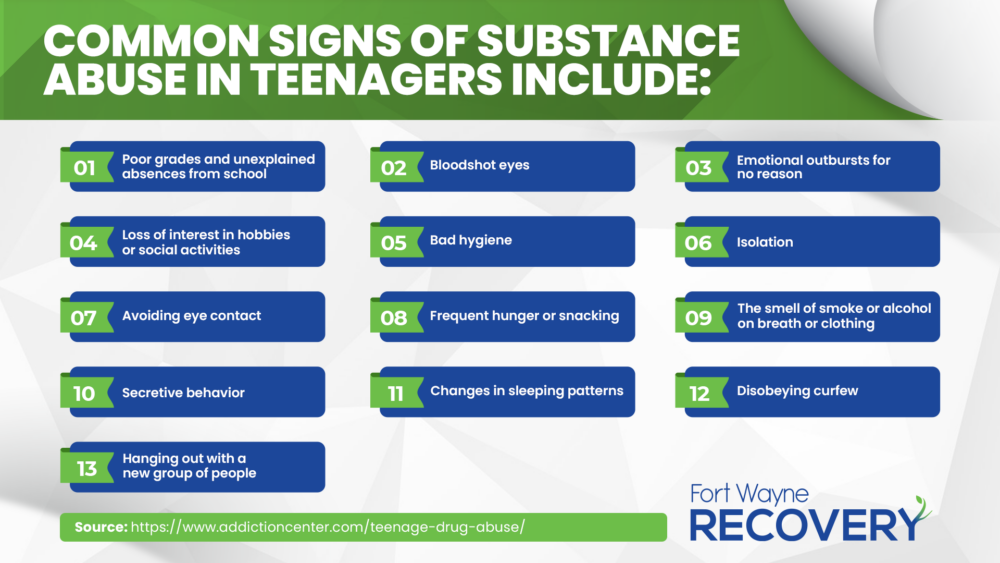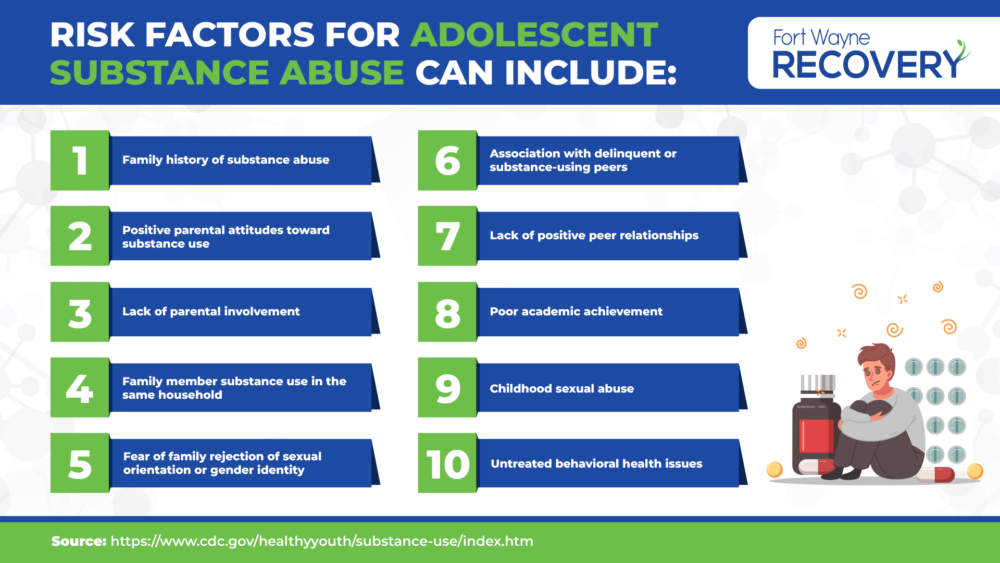Preventing Substance Use Disorders In Adolescents
Preventing Substance Use Disorders In Adolescents
As high rates of drug and alcohol use plague the country, medical professionals, addiction specialists, and lawmakers are looking for ways to prevent drug and alcohol use among teenagers. The majority of adults who were dependent on drugs, first experimented with drugs before they turned 21 and in another study, researchers found that people who started drinking alcohol between the ages of 11 to 14 were significantly more likely to be addicted to alcohol 10 years later.
While many parents want to find ways to prevent their teenager from developing a substance use disorder (SUD), 1 in 3, believe there is little they can do. However, evidence shows that parental involvement is one of the strongest factors in teenage substance use prevention. Parents need to understand the reasons why their teen may decide to experiment with drugs and alcohol and the impact substance use can have on their life at an early age.
How Experimentation Can Turn into Substance Use Disorders
60%
of adolescents 12 or older, reported using drugs, alcohol, or tobacco in the past month.
Teenagers are programmed to push boundaries – whether it’s through altering their appearance, the music they listen to, or through engaging in drug or alcohol use. The National Survey on Drug Use and Health (NSDUH) reported that nearly 60% of adolescents 12 or older, reported using drugs, alcohol, or tobacco in the past month. While many people think experimentation with these substances is harmless, studies show that substance use as a teenager can transition into a SUD later in life.
Teens may feel they are in full control of their drug experimentation but since the human brain doesn’t stop forming until a person reaches their mid-to-late 20s, the teenage brain is particularly vulnerable to being rewired by these substances that overload the reward circuits in the brain. This means that adolescents are more susceptible to forming an addiction than adults who experiment with drugs.
David Sack M.D. is board certified in Psychiatry, Addiction Psychiatry and Addiction Medicine, explains that teens don’t consider the potential consequences drugs and alcohol can have when they consume them. “They’ll start off with something they perceive as ‘innocent’ such as alcohol or marijuana or set boundaries like, ‘I’ll only party on weekends,’” says Sack.
There are many reasons why teenagers may be tempted to experiment with different substances including peer pressure, stress management, or out of simple curiosity. Tommy Streeter, a community outreach coordinator at Allendale Treatment and Fort Wayne Recovery says that his desire to fit in with his peers lead to him experimenting with drugs for the first time. “I wanted to fit in but what was really driving my reason for experimentation were underlying issues of inadequacy and not liking myself even though growing up I had all the love and support I could ask for from my family and friends but for some reason, I was not comfortable in my skin and that eventually manifested itself into a drug addiction,” says Streeter.
“I wanted to fit in but what was really driving my reason for experimentation were underlying issues of inadequacy and not liking myself even though growing up I had all the love and support I could ask for from my family and friends”
“I wanted to fit in but what was really driving my reason for experimentation were underlying issues of inadequacy and not liking myself even though growing up I had all the love and support I could ask for from my family and friends”
Potential Consequences of Substance Abuse for Teenagers
Since the areas of the brain that control maturity, decision-making and impulsive actions are not yet fully developed, teens who experiment with drugs and alcohol put their health and safety at risk. Potential negative consequences of teen substance abuse include:
Adolescent substance abuse can also have serious physical consequences including increased risk of injuries due to accidents, learning and memory difficulties, mental health issues and sleep disorders. Commonly used “party drugs” such as cocaine and ecstasy can cause heart failure, strokes and seizures. Large amounts of alcohol can cause liver damage and ulcers and marijuana can trigger behavioral health issues such as psychosis, hallucination, or paranoia.
Nate Moellering is also a community outreach coordinator at Allendale Treatment and Fort Wayne Recovery and says that drugs consumed by teenagers who are looking to party may contain other substances in them that they are unaware of. “Fentanyl is commonly found in other drugs such as marijuana, cocaine, methamphetamines and ecstasy so teenagers may be unknowingly consuming and developing a tolerance for fentanyl without realizing it,” says Moellering. “It also puts them at an increased risk for overdosing.”
“It also puts them at an increased risk for overdosing.”
Nate Moellering, Community Outreach Coordinator

How to Prevent Substance Abuse in Adolescents
Experts recommend that parents discuss drug and alcohol use with their teens frequently and ask them what their opinions are on the topic and answer any questions they have. This will enable parents to open up the line of communication so that both parties are comfortable discussing the topic. Parents should also avoid bringing up the topic when they are angry or frustrated with their child since the conversation will translate as more of a lecture than a discussion.
If a parent is starting to suspect that their teen is engaging in drug or alcohol use, they should keep an eye out for any warning signs and implement these tactics to prevent it from turning into a larger problem:
Sack says that parents shouldn’t feel like they failed if they find that their child is experimenting with drugs or alcohol and advises them to keep implementing prevention tactics. “Best case scenario, your child isn’t using drugs, and by talking and listening frequently, you’ve conveyed your zero-tolerance policy and sent a clear message of concern for your child,” says Sack. “Worst case, your child has a problem that you caught before it follows [him/her] into adulthood.”


